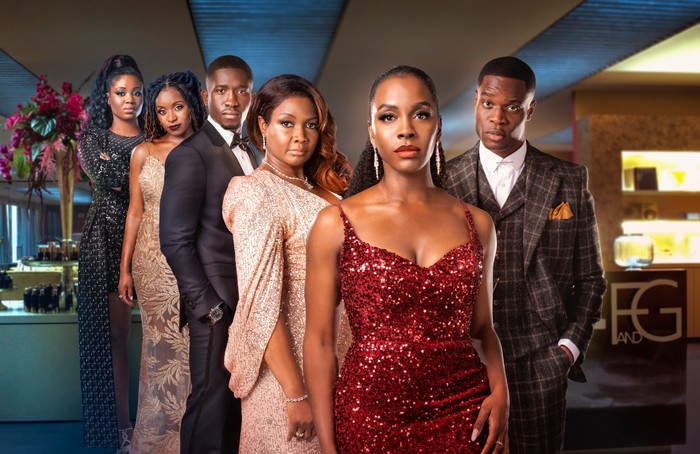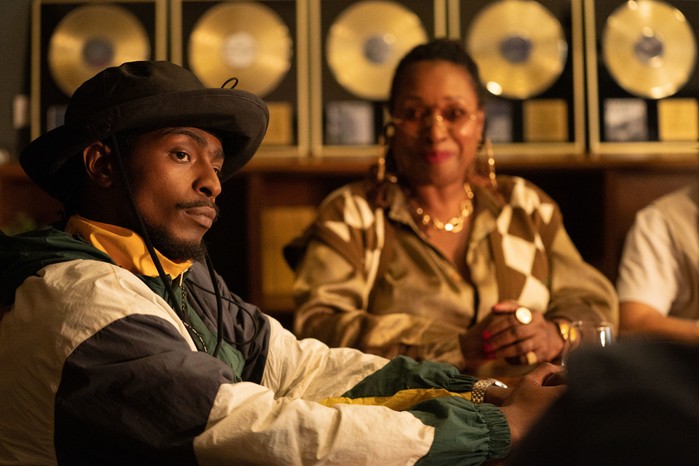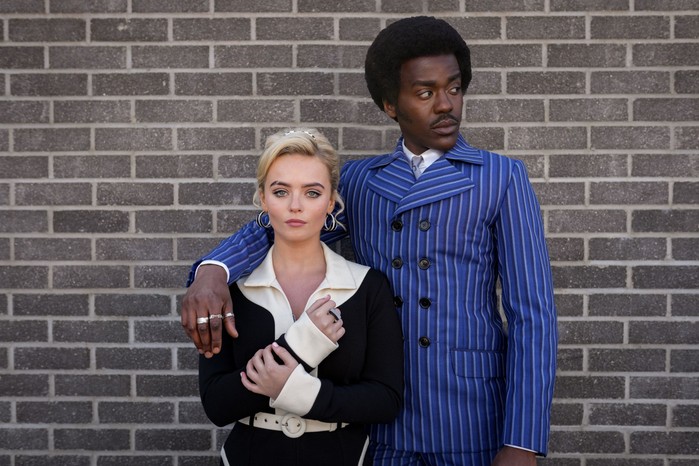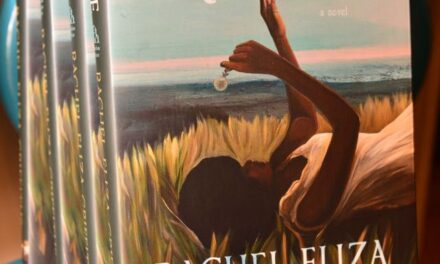Social media was awash with performative allyship in the form of black squares and infographics, various companies pledged to do better in terms of their hiring practices and, in the world of TV and film, the industry was put under the microscope, with many speaking about the harsh reality of underrepresentation.
Despite the rise in conversations around Black Lives Matter and continued efforts for diversity in TV, the Creative Diversity Network’s 2021 Diamond report found that representation of Black, Asian, and minority ethnic people had decreased (both on-screen and behind-the-scenes) in the industry.
Off-screen contributions in 2021 for this group were found to fall below the national workplace estimate at a staggeringly low 11.8%, compared to a marginally better 12.3% the year prior.
But it was drama that was the genre that saw the fewest off-screen contributions. The report did note that drama continued a trend for significantly higher Black, Asian and Minority Ethnic on-screen representation when compared to off-screen but the 2020 Race and Ethnic Diversity deep dive into the data found that as well as factual shows, “drama programmes are the least ethnically diverse, with fewer than 10% of off-screen contributions being made by BAME groups in each of these genres”.
But what about the representation of Black people on screen? Limitations of the usage of the term ‘BAME’ aside, in plain-speaking terms, how does this correlate to the amount of Black characters and performances we see on the screen in TV series every day?
Well, according to the statistics included in the report, on-screen contributions for drama for Black people stood at just 4.9%. That’s right, less than 5% is the drastically low figure we’re left with when you break that figure down for Black people specifically. ‘Disappointing but not surprised’ is the phrase that personally springs to mind, not least because you can still see this glaring lack of diversity within our TV schedules, despite on-screen representation figures rising to a much healthier 31.1%.

When it comes to terrestrial television, it’s not a secret that primetime dramas on a Saturday or Sunday evening will more often than not include a majority white cast. Some of the BBC’s biggest hit dramas of the year – Happy Valley, Blue Lights, Shetland to name a few – don’t boast any recurring main cast members of colour, let alone a Black lead.
In 2020, ITV announced its Diversity Acceleration Plan which committed to ensuring that its shows “better represent contemporary British life”, which included increasing diversity among the broadcaster’s highest-profile shows. The broadcaster also said it would support talent from BAME backgrounds to help them secure lead roles in its dramas.
Similarly, the BBC pledged to spend £100m on “diverse productions and talent” over the next three years with the BBC’s Director-General at the time, Tony Hall, saying: “The senseless killing of George Floyd – and what it tells us about the stain of systemic racism – has had a profound impact on all of us. It’s made us question ourselves about what more we can do to help tackle racism, and drive inclusion within our organisation and in society as a whole.”
Reflecting on the pledges made in 2020, ITV brought in Ade Rawcliffe as the Group Director of Diversity and Inclusion, and last year announced a £80 million Diversity Commissioning Fund.
The BBC’s on-screen perceived Diamond data for 2022/23 sits at 27.2% for Black, Asian and minority ethnic representation, with its most recent report highlighting series like Black Ops, Mood, Dreaming Whilst Black, The Pact 2 and Granite Harbour as examples of on-screen and off-air inclusive talent.
In 2020, multi award-winning director, Steve McQueen, wrote in The Guardian: “The culture of the industry has to change. It’s just not healthy. It’s wrong. It’s blatant racism. Fact. I grew up with it. I know it. And not nearly enough is being done about it.”
He also wrote: “Where are the contemporary dramas about everyday black life?”
McQueen’s still got more than a point three years on – where exactly are they? Releases in the past year like ITV’s Riches underpin the fact that a series can be led by a Black cast, can be topical and relevant while also leaning on the soap-style drama that viewers love.
Similarly, at the heart of BBC’s Champion is a discussion of relatable family dynamics and music. These shows reiterate the fact that shows about Black people don’t need to be underpinned by trauma but can still contain the same drama and comedy that we all love in TV.

While channels like ITV, BBC, Channel 4, 5 and the like will continue to work on their own individual diversity targets, it’s worth reflecting on whether the catch-all phrase holds much weight anymore. As Dreaming Whilst Black executive producer Danny Joshi recently said, the industry needs to be more “specific” in its discussions around the use of the term.
Watching TV now, you wouldn’t think that Black people live in other parts of the UK aside from London. While London is a diversely rich city, TV also has a duty to represent and discuss lesser-known class systems and regional identities as it pertains to Black people throughout the country. What about other parts of England, Scotland, Wales and Ireland?
When we analyse recent releases, there are a lack of Black leads and shows about Black identity but particularly, dramas that aren’t just centred in the capital. More recently, The Woman in the Wall reflected on the real-life harrowing tale of The Magdalene Laundries and managed to weave in the fictional story of Daryl McCormack’s Colman Akande, a mixed-race police officer who was racially segregated in an Irish mother and baby home.
The BBC’s upcoming This Town has been set and filmed on location in Birmingham, with the series set to tell the story of an extended family and four young people who are drawn into the Ska and Two-tone music scene in the ‘80s, which united Black, Asian and white youth at the time. The show boasts a cast of rising talent, being led by the likes of Levi Brown (Loss and Return) and Jordan Bolger (The Woman King).
Similarly, Sir Lenny Henry’s Three Little Birds was shot on location in the Midlands and tells the post-Windrush stories of three fictional women who make the major move from Jamaica to the Black Country in the late ’50s.
Lest we forget that for the first time in the sci-fi’s history, Doctor Who will be helmed by its first Black doctor, Ncuti Gatwa, who told Rolling Stone UK that the British press’s reaction to his casting news was “mean” but that the inclusion of an afro in one of his upcoming Doctor’s looks is “a statement — the Doctor is f**king Black”.
There are certainly some terrestrial shows to look forward to in the coming months and there have been some great successes this year already, with the likes of Dreaming Whilst Black cementing itself as a hilarious and relevant watch and Snowfall, which is available on BBC iPlayer, continues to bring the drama with Damson Idris in the lead drug kingpin role.
But will 2024 be the year when TV viewers can look forward to more than just a handful of TV series that tell authentic and wide-spanning Black stories with Black on and off-screen talent?
While this article could’ve reflected on the likes of Top Boy, Queen Charlotte: A Bridgerton Story, The Other Black Girl, The Changeling, Survival of the Thickest, Hijack or Jungle, these shows are all available to stream on platforms like Netflix, Disney Plus, Prime Video or Apple TV+.
Streamers have become known for more representation than we’re used to seeing on linear channels, but when exactly can we anticipate a larger output of racially diverse content on terrestrial channels rather than having to rely on the streamers for it?
Similarly, when it comes to TV overall, there’s a real push for entertainment and factual programmes to authentically represent all parts of the UK with popular shows like Great British Bake Off and Big Brother being helmed by Alison Hammond and AJ Odudu, while series like Married at First Sight UK and Love Island continue to attempt to represent a slice of the UK population with its contestants.

Although you would think there could be more done in the realms of dramas, 45% of people in the UK actually think ethnic minorities (as well as LGBTQ+ people) are over-represented on TV in general, according to a recent YouGov survey.
The embittered response to the YouGov survey doesn’t surprise me, but also wholly misses the point. While the UK’s census may demonstrate a majority of inhabitants being white, it’s not necessarily about reflecting that directly onto the TV.
Representation – no matter whether you’re a child or much older – is so important, it doesn’t need saying. Representation on TV is about championing the diversity we do have, striving to make less monolithic content about these groups and honouring the rich stories, history and TV content that can be made.
More like this
Do away with ideas about a Roots reboot and instead, what can appeal to and reflect Black culture in a way that feels authentic and driven, in the same ways that other popular dramas, comedies and limited series strive to do? Like Prime Video’s Swarm managed to capture, Black women can be angry, obsessed killers in the same way that many crime dramas platform white male characters as such. Similarly, psychological dramas, sci-fis and thrillers can also centre on Black characters without tired tropes and tokenistic casting.
We also can’t forget the mission of some of those working in this field and the recent simultaneous departure of some diversity and inclusion employees, only further underlining just how draining it can be for people of colour to constantly have to be the ones to highlight company failings around race.
State senator Lola Smallwood-Cuevas previously said during a California Legislative Black Caucus press conference that the exodus shows “a pattern that suggests diversity, equity and inclusion is no longer a priority at the highest levels of the film industry, where decisions are made and institutional change happens”.
The BBC’s June Sarpong, Warner Bros Discovery’s Karen Horne, Academy of Motion Pictures Arts and Sciences’ Jeanell English and Disney’s LaTondra Newton have all left their roles, all of whom led diversity initiatives at their former companies. It’s a telling sign for a TV industry in the wake of diversity promises made years ago.
A glaringly obvious lack of Black talent on our screens and behind the camera doesn’t mean that anything that has been done should be criticised. With pledges, new schemes, initiatives and company positions being created, there’s a drive to do more.
It’s just, with the all-consuming nature of terrestrial TV and the constant flurry of shows being released and commissioned, we now stand three years on from some pretty major promises being made by the UK’s big broadcasters and I’m not alone in having a marked level of impatience and disappointment.
Check out more of our Drama coverage or visit our TV Guide and Streaming Guide to find out what’s on.
Want to visit Death in Paradise locations in Guadeloupe at a discount? Radio Times is offering savings of up to 7% for registered users booking their next holiday with travel website Expedia. Claim your exclusive Radio Times Expedia holiday discount now.
Try Radio Times magazine today and get 10 issues for only £10, PLUS a £10 John Lewis and Partners voucher delivered to your home – subscribe now. For more from the biggest stars in TV, listen to The Radio Times Podcast.





